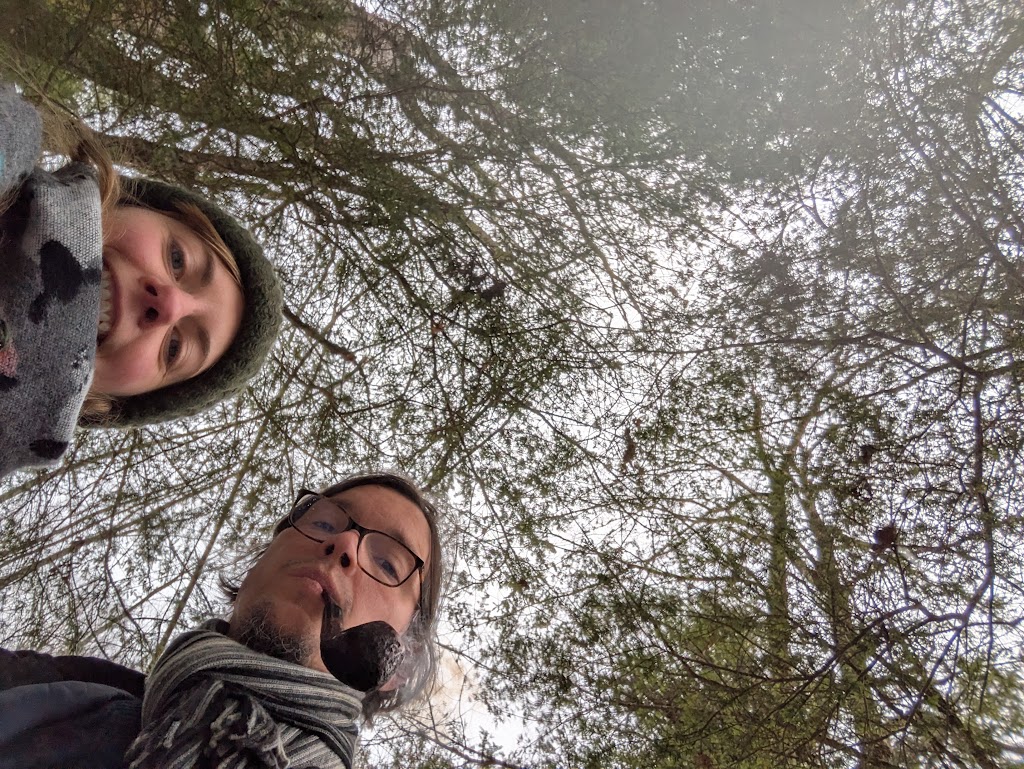Bard by Morgan Llewelyn has a great passage about a society too focused on the material world: The speaker describes two roads to take: “One would develop the forces locked within our minds; the other direction led to the constant refinement of tools and weapons, increasing reliance on matter rather than spirit. In choose the second road, we had almost followed our teachers to disaster. We had become infatuated with our fearful weapons for their own sake, until we frightened even ourselves and our dream was corrupted into horror” (128-9). A people driven by matter and not spirit. And what a good lesson for today: we’ve focused on refining our tools into machines and weapons so that our hands only become metaphorically bloodied in war. And yet we’ve also denied the body, failed to recognize how intricately connected our bodies are with our experience of the spiritual, how we need them to experience the spiritual at all.
A dominating view of history is that intellect wins in the dialectic between body and mind. Our minds, rationalism, conquer, persevere beyond the material world. And it would seem they don’t ultimately need each other, if one finally conquers the other. The speaker in this passage likewise suggests there are only two roads, one of spirit (spiritual world) or material possession (body).
David Brooks writes in an Atlantic article called “How the Ivy League Broke America” that since at least the 1930’s we’ve been sorting people by intelligence and acting as if this sorting will create loads of Einsteins. But it hasn’t. We’ve only entrenched ourselves into a system of elitism that favors those with enough money to pay for good education and denied the rest of us other possibilities of merit, ones like flexible thinking, social intelligence, a sense of drive, and curiosity (36). In the terms of the Bard, we’re a people that has emphasized spirit, not matter. But I think there’s an issue with perceiving these parts of ourselves as somehow separable.
In Gwendolyn Morgan’s article “Religious and Allegorical Verse,” she points to the shift from a dualistic to Neoplantoic binary perspectives from pre-conquest to post-conquest England. She says the “wisdom literature” of early Medieval England (pre-conquest) “expresses a tendency to synthesize differing views of life, attempting to reconcile the seemingly irreconcilable into a coherent expression of the nature of existence. Rather than polarize opposites in the manner of Neoplatonic medieval Christianity, the vision expressed in charms and riddles embraces these opposites as different aspects of the same thing—two sides of the same coin—both essential to the natural order” (28). Her example is of a riddle (Riddle 74) where the speaker is both young and gray-haired, is something that flies, swims, and walks on land, is both alive and dead. This riddle demonstrates “reconciliation of opposites into merely different aspects of the same thing” (28).
What of this third? A third, unbeaten path, the not-yet made path where the two paths converge and we intertwine body with spirit, for that is how we become integrated (or individuated in Jungian terms). We cannot have one without the other.
We deeply diminish ourselves. The matter of creativity, or intertwining matter and spirit, are so far apart, we no longer recognize that way. We are obsessed with our brains and with material possessions. But the two are no longer integrated, they struggle to work together, they barely recognize each other. How do we integrate body with spirit?
Perhaps one way is to push back against things that separate us from our bodies. Our bodies were meant to move, meant to act, and interact and participate with our environment. We separate from ourselves and strive for a leisurely life that never reconnects us to ourselves. What if our work never separated us from ourselves? What if we never felt like we needed a vacation as our culture currently views it because we don’t burn out? What if what we did on a daily basis we actually understood and felt as contributing directly to our community? Brooks ends his article by suggesting we should continue to want intelligence, yes, but to also recognize that “energy and initiative” have equal importance. He says, “I would submit that it’s your desires—what you’re interested in, what you love. We want a meritocracy that will help each person identify, nurture, and pursue the ruling passion of their soul” (40).
Perhaps soul is what we find when we reconcile our opposites. Soul is what I find when I first recognize and then follow my desires. Maybe if we took the trees and birds and dogs and cats around us a little more seriously, we would perceive that is precisely what they’re doing all the time.
Bibliography
Brooks, David. “How the Ivy League Broke America.” The Atlantic, Vol. 334, No. 5, Dec. 2024. Pp. 26-40.
Llewelyn, Morgan. Bard. Tor Books, 1987.
Morgan, Gwendolyn. “Religious and Allegorical Verse.” A Companion to Old and Middle English Literature, ed. Laura Cooner Lambdin and Robert Thomas Lambin, Greenwood Press, 2002. Pp. 26-36.


